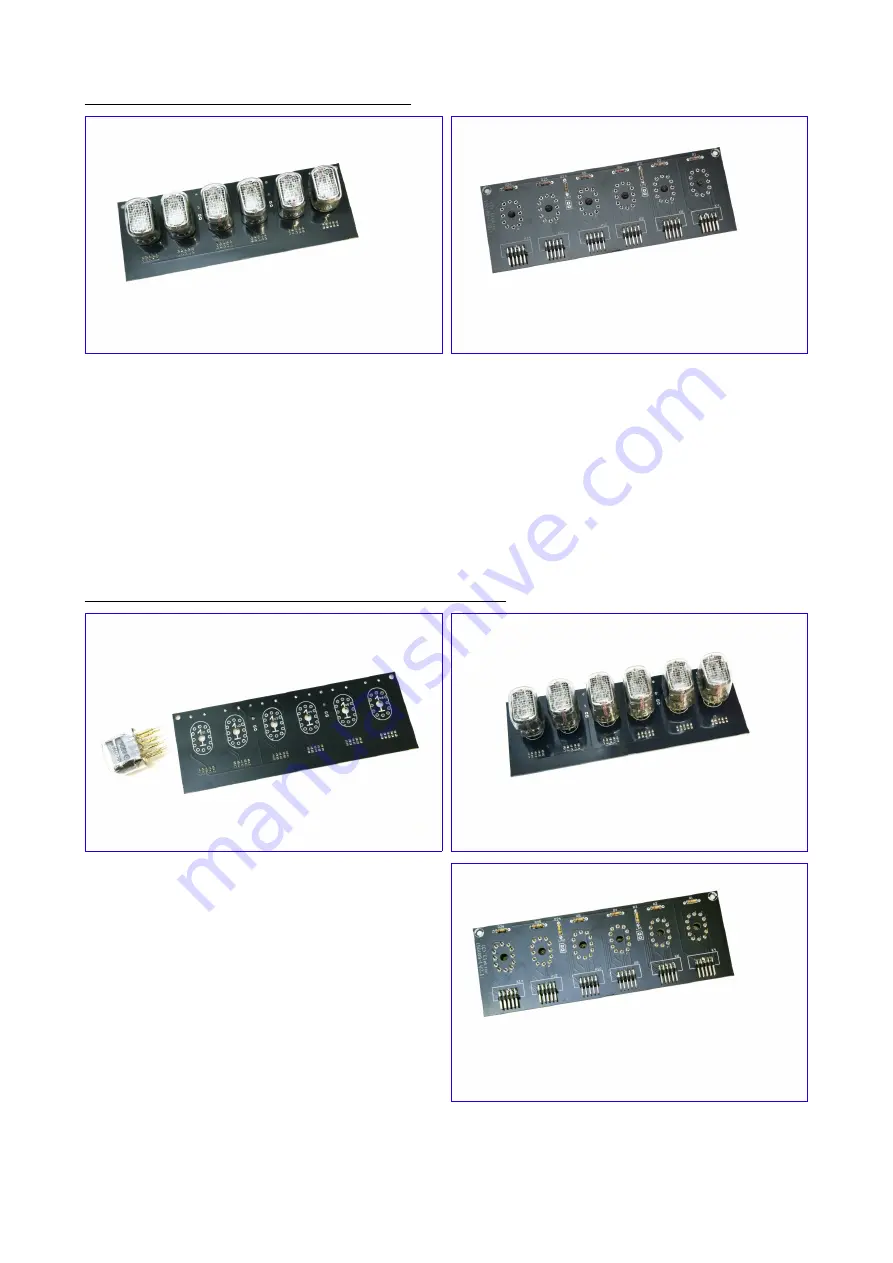
Mounting the tubes without tube socket pins
Put each IN-12 tube with its pins though the holes of the PCB from the solder side and solder them
temporarily in place by soldering the top pin of each tube.
Now turn over the board and take a look at the alignment of the tubes. If needed, you can still
make corrections by reheating the solder connections.
If you are satisfied with the alignment of the tubes, you can solder the remaining pins. Keep the
temperature of your soldering iron as low as possible and keep the soldering time as short as
possible.
Please note that it will be difficult to replace a defective nixie tube if the tubes are soldered
directly to the board.
Mounting the tubes with tube socket pins (recommended)
Pinch the tube socket pins between your fingers
so they will be more tight. In order to mount
the tubes, you can choose between two
options. You can either slide the tube socket
pins over the pins of the tube and push the tube
with socket pins through the holes of the PCB or
fit the tube socket pins to the PCB and push the
tubes in the socket pins. If you choose the latter
option, make sure the pins of the tubes are
correctly seated into the socket pins.
When all the tubes are in place, turn over the PCB and solder the tube socket pins from the
backside. Do not use too much solder and keep soldering time short.







































